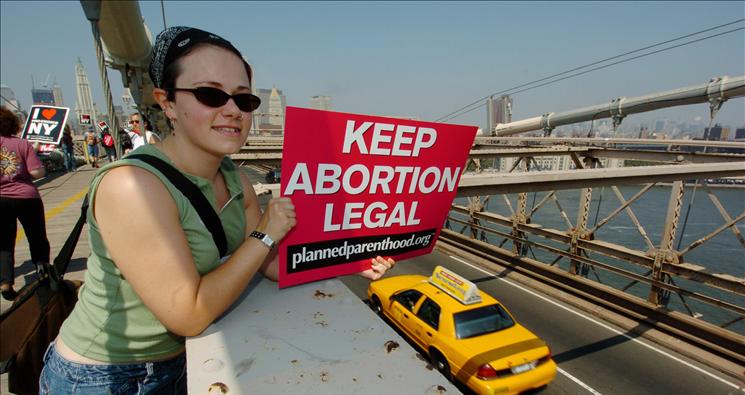Pushing Back to Hold Planned Parenthood Accountable in a Major Fraud Case
At the ACLJ, we have been working overtime to get a whistleblower case against Planned Parenthood back on track after a three-judge panel of the U.S. Court of Appeals for the Ninth Circuit ordered the case dismissed. Helping that effort are two friend-of-the-court briefs filed, urging the Ninth Circuit to change its mind and send the case back for further proceedings.
The lawsuit, brought by P. Victor Gonzalez back in 2005, the former Chief Financial Officer of Planned Parenthood Los Angeles (PPLA), has taken many twists and turns, and is now at a crucial point for the future of the case. The fate of the case currently rests with the judges who are reviewing an ACLJ petition for rehearing of the appeal.
Mr. Gonzalez’s case was filed under the federal False Claims Act (FCA) and a similar California state law. The FCA (and California FCA) prohibits false claims against the government, i.e., requests for payments to which the claimant is not entitled. Private parties – whistleblowers – can use the FCA to sue those who have cheated the government. If the suit is successful, the private party gets a share of the recovered proceeds as a reward for exposing and redressing the false claims.
In the case of Gonzalez v. PPLA, Mr. Gonzalez alleges that the California affiliates of Planned Parenthood systematically and illegally overbilled the state and federal government for birth control drugs and devices, including ones that can cause very early abortions. Basically, according to the complaint, when Planned Parenthood distributed such birth control to indigent persons, Planned Parenthood was allowed to seek government reimbursement for what Planned Parenthood paid for the birth control – Planned Parenthood’s “acquisition cost” – but what Planned Parenthood did instead was bill the government for much higher amounts, sometimes more than ten times “acquisition cost,” resulting in illegal overcharges (and payments) in excess of $200 million.
A federal district court judge threw the case out in 2008, ruling that Mr. Gonzalez was not a proper party to bring the suit. ACLJ attorneys then entered the case on behalf of Mr. Gonzalez to handle his appeal, which was successful when the U.S. Court of Appeals for the Ninth Circuit in 2010 reversed the district court and reinstated the lawsuit, holding that Mr. Gonzalez was indeed a proper party to sue because he was an “original source” of the information about the false claims.
When the case returned to the federal district court in Los Angeles, the judge threw the case out again in 2012, declaring that Mr. Gonzalez did not allege that Planned Parenthood had made any claims that were “false.” We again appealed, and a three-judge panel of the Ninth Circuit heard oral argument in Pasadena on June 5, 2014. After the argument, the appeals court judges ordered the parties to address, not “falsity,” but a new issue, namely, whether the complaint “plausibly” alleged that Planned Parenthood knowingly filed false claims. Shortly after receiving the additional briefing, the three-judge panel, on July 22, affirmed dismissal of the case.
The Ninth Circuit unfortunately got the matter wrong when it affirmed the district court’s decision to throw this case out. The district court embraced the faulty theory that illegally inflated invoices are not “false claims,” when overbilling of the government was one of the very reasons the False Claims Act was passed in the first place. And the Ninth Circuit, while not making that same mistake, went astray in a different direction by ruling that the complaint does not allege that Planned Parenthood knew – or was reckless about – the falsity of its billing mark-ups.
We filed a petition for rehearing of this appeal on August 5, pointing out that the FCA only requires a whistleblower to allege that the false claim was submitted “with reckless disregard.” In this case, the petition noted, Mr. Gonzalez alleges that the law forbade Planned Parenthood’s marked-up charges, and that state officials repeatedly and explicitly told Planned Parenthood it could not mark up the charges. The petition argues that Planned Parenthood’s supposed excuses for ignoring these clear instructions are so flimsy as to amount to “quintessential recklessness – or at least, a jury could so find.”
The petition asks the court of appeals either to have the panel reconsider its decision or to have an eleven-judge “en banc” court review the case.
On the same day the ACLJ filed the petition for rehearing, the appeals court ordered Planned Parenthood to respond to the petition. That response is due today. The court of appeals could issue an order granting or denying the petition for rehearing anytime after Planned Parenthood files its response.
In the meantime, two amicus – “friend of the court” – briefs have been filed in support of the ACLJ’s call for rehearing. One amicus brief, filed on behalf of three attorneys in private practice who handle whistleblower cases, chides the court for getting the law wrong in this case and thereby threatening valid whistleblower cases in the future. The other amicus, submitted by Americans United for Life (AUL) on behalf of Concerned Women for America (CWA), documents numerous incidents of Planned Parenthood allegedly breaking the law to boost its profits. The AUL/CWA amicus illustrates the apparent corporate culture of corruption that characterizes Planned Parenthood, forcefully undermining the notion that Planned Parenthood can be assumed to be above cheating the government.
As ACLJ Chief Counsel Jay Sekulow says, “No one should be allowed to scam the government – which means bilking the taxpayers. Our client accuses Planned Parenthood of cheating taxpayers out of more than $100 million. All we ask of the court of appeals is the chance to prove those allegations.”
We’ll continue our fight to hold Planned Parenthood, the largest abortion provider in America, accountable for their actions.
